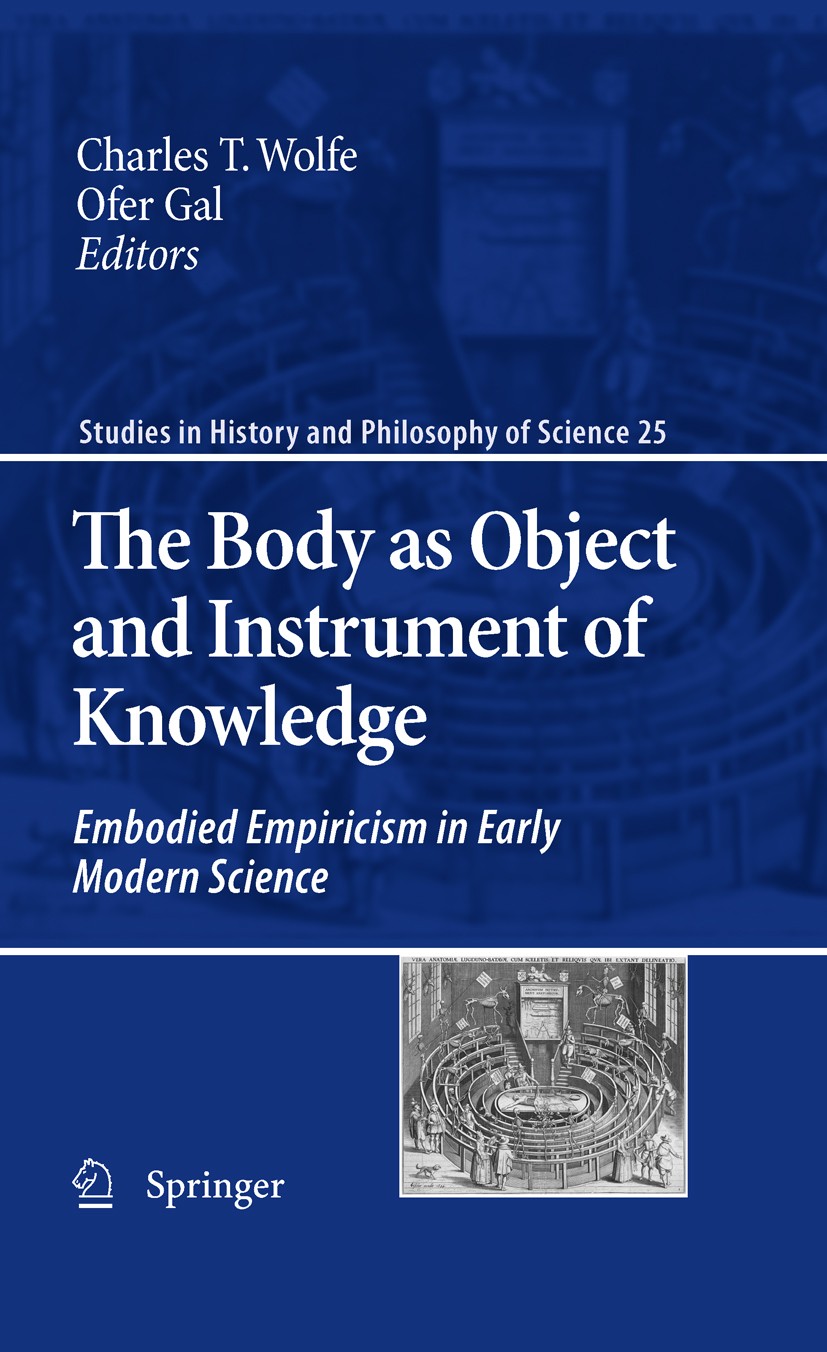| 书目名称 | The Body as Object and Instrument of Knowledge | | 副标题 | Embodied Empiricism | | 编辑 | Charles T. Wolfe,Ofer Gal | | 视频video | http://file.papertrans.cn/906/905318/905318.mp4 | | 概述 | Overview from worldwide distinguished philosophers about the role of the body in empiricism.New insights in the works of philosophical giants like Locke, Galileo, Bacon, Lamarck, Berkeley, Spinoza and | | 丛书名称 | Studies in History and Philosophy of Science | | 图书封面 |  | | 描述 | .It was in 1660s England, according to the received view, in the Royal Society of London, that science acquired the form of empirical enquiry we recognize as our own: an open, collaborative experimental practice, mediated by specially-designed instruments, supported by civil discourse, stressing accuracy and replicability. Guided by the philosophy of Francis Bacon, by Protestant ideas of this worldly benevolence, by gentlemanly codes of decorum and by a dominant interest in mechanics and the mechanical structure of the universe, the members of the Royal Society created a novel experimental practice that superseded former modes of empirical inquiry, from Aristotelian observations to alchemical experimentation..This volume focuses on the development of empiricism as an interest in the body – as both the object of research and the subject of experience. Re-embodying empiricism shifts the focus of interest to the ‘life sciences’; medicine, physiology, natural history. In fact, manyof the active members of the Royal Society were physicians, and a significant number of those, disciples of William Harvey and through him, inheritors of the empirical anatomy practices developed in Padua dur | | 出版日期 | Book 2010 | | 关键词 | Bacon; Berkeley; Body; Early modern philosophy; Embodied Empiricism; Empiricism; Experiment; Hume; Locke; Phi | | 版次 | 1 | | doi | https://doi.org/10.1007/978-90-481-3686-5 | | isbn_softcover | 978-94-007-3201-8 | | isbn_ebook | 978-90-481-3686-5Series ISSN 1871-7381 Series E-ISSN 2215-1958 | | issn_series | 1871-7381 | | copyright | Springer Science+Business Media B.V. 2010 |
The information of publication is updating

|
|
 |Archiver|手机版|小黑屋|
派博传思国际
( 京公网安备110108008328)
GMT+8, 2026-1-2 22:38
|Archiver|手机版|小黑屋|
派博传思国际
( 京公网安备110108008328)
GMT+8, 2026-1-2 22:38


